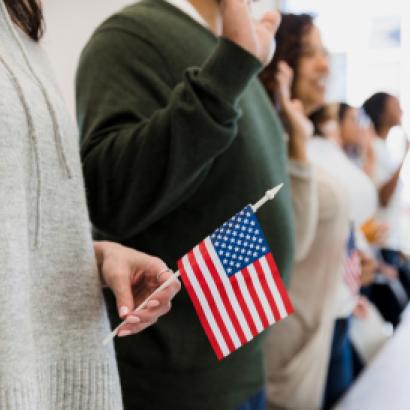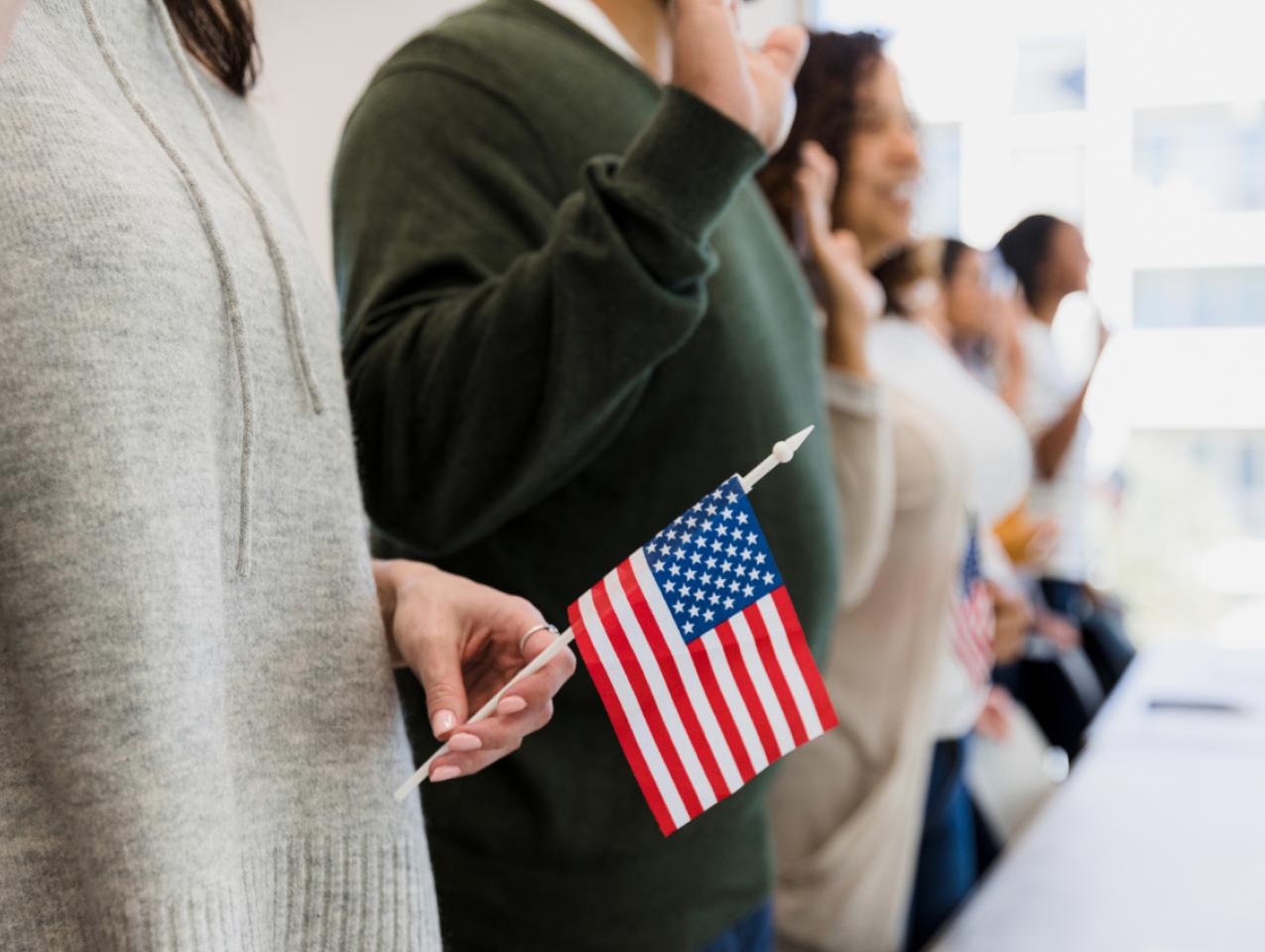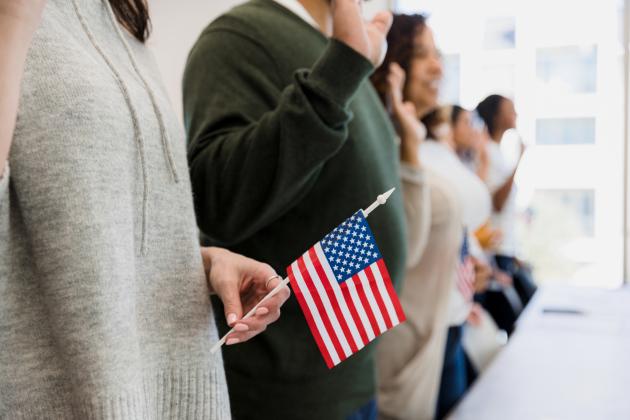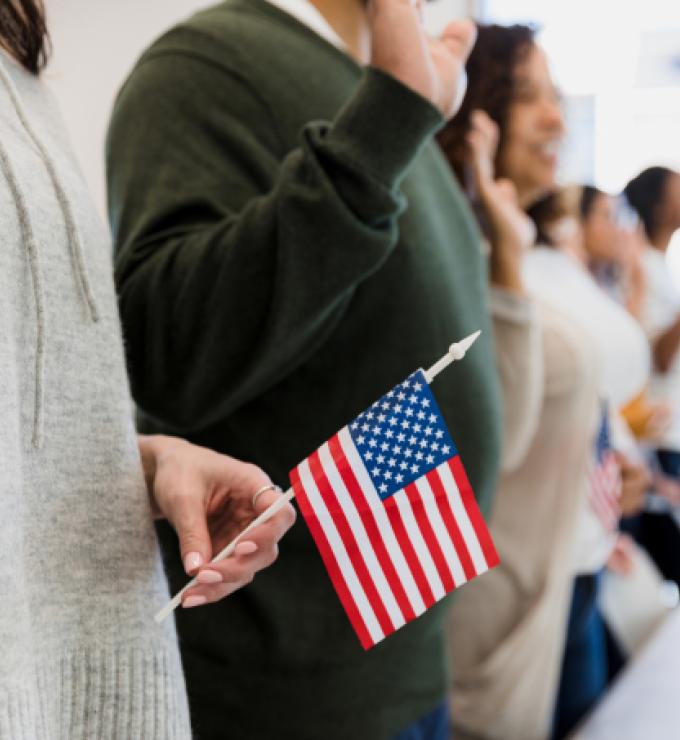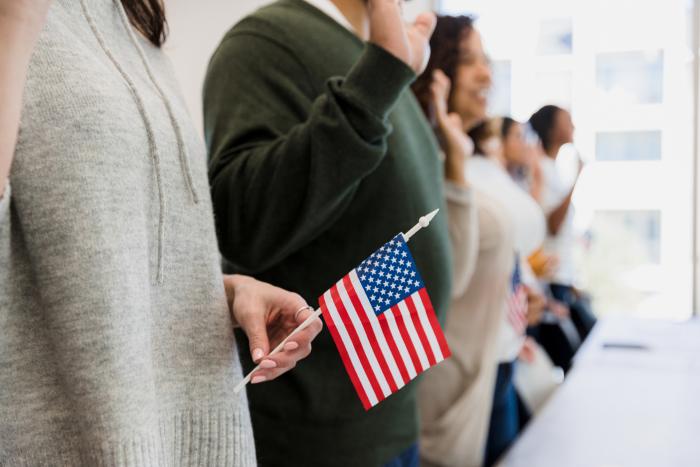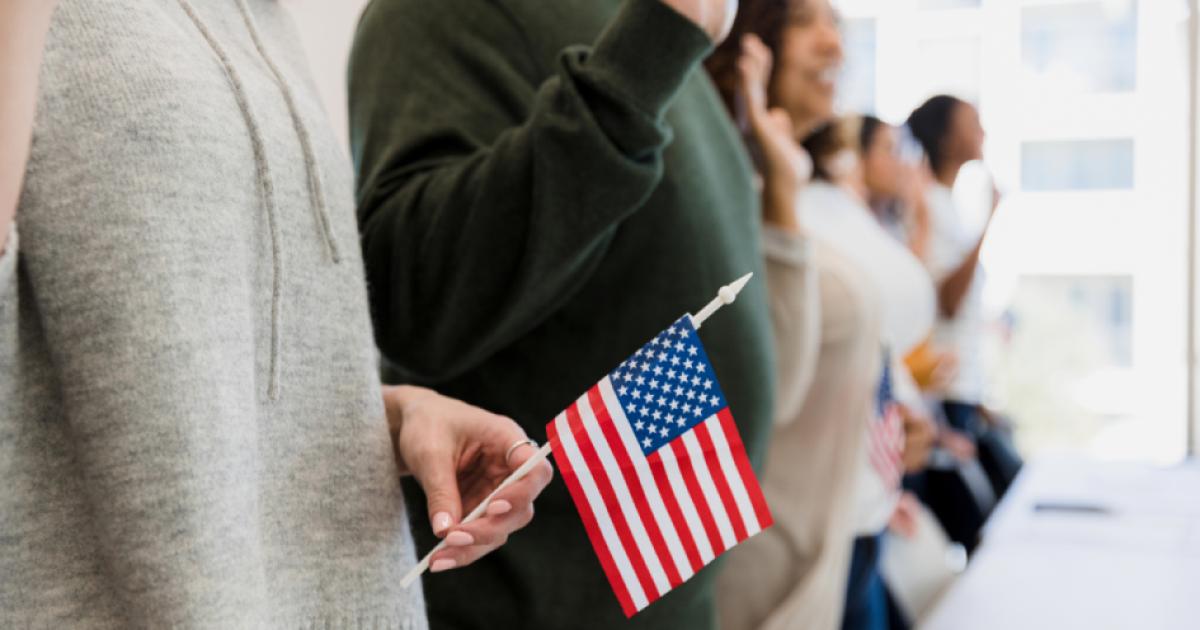We are troubled but unsurprised by fresh evidence of American civic decline, evidence that comes from an August 2023 survey conducted by YouGov on behalf of the Working Group on Good American Citizenship (GoodAmCit), based at Stanford University’s Hoover Institution. At the same time, we’re heartened by several rays of hope that penetrate the gloom.
There can be no doubt—it’s clear from these data—that large majorities of Americans, regardless of party affiliation, harbor deep distrust regarding the nation’s present direction and have little use for its government, its elected officials, or its politics. We also see, once again, that most know very little about the structures and functions of government itself. And—heading into a key national election—we find fresh evidence of substantial partisan differences on a host of issues.
These findings certainly seem to augur poorly for the future and to work against a renewal of good citizenship. Yet at the same time, most Americans are reasonably content with their own lives, the communities in which they live, even the governments of those communities. What’s more, many claim to be well-informed about public affairs, to participate in community matters, to believe they have (or could have) influence on important local decisions, and to discuss issues respectfully, even when they disagree. Many traditional American values continue to be widely held. Though the term “patriotism” has become contentious among “culture warriors,” over four-fifths of survey respondents consider themselves patriotic. And 70% of Americans trust their fellow citizens to make the most important decisions regarding their lives and the nation (though this is in the context of not trusting “elected officials” with such important matters.)
Also notable: some of these findings, both worrisome and reassuring, turn out to be stable over time. Designers of the 2023 Hoover/YouGov survey were able to pose several questions that matched (or closely resembled) questions posed to American respondents in the mid-20th Century by Gabriel Almond and Sidney Verba as part of their protracted examination of civic culture in the U.S. and other countries. Comparing results from beginning to end of that protracted period is often illuminating and sometime encouraging—both in the sense that matters have not worsened and some examples of improvement.
The new (2023) findings come from a representative sample (1642 respondents) of the adult population with a 3 percent margin of error. Demographic crosstabs display gender, age, race, party affiliation, voter registration status and the region in which respondents live.







